Judo Bank co-founder Joseph Healy starts new venture in mental health after son’s death
Joseph Healy pulled himself together enough to co-pilot the $660m float of Judo Bank on the ASX, but the tragic death of his son in the lead up has spurred a new way of doing business for him | WATCH
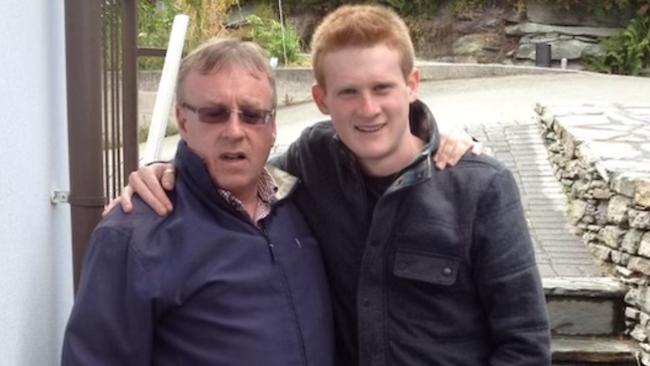
Joseph Healy still recalls the most difficult day of his 62 years on Earth like it was yesterday.
The veteran former ANZ and NAB banker knew something was wrong in early 2021 when he didn’t hear from his 24-year-old son, George, for several days. George had been calling his father or mother without fail from his new home in America every day.
George had suffered mild periods of depression throughout his young life. He’d been to a bunch of psychologists in his home town of Sydney, but none could help him.
“Then he said to me, ‘Dad, I want to go to the United States because I think a change in scenery will give me a fresh start. So he went off to the University of Arizona,” Healy says.
“Then he was at a party one evening, and he took a drug that was laced with fentanyl. He went home to bed and never woke up.”
The police found George unresponsive when they visited his home at the urging of his parents. It was at the height of the Covid pandemic, so Healy had his son’s body cremated and eventually received special permission to leave Australia to repatriate his ashes.
Healy has chosen to never view photos of his son taken after his passing, while he was hopelessly, tragically stuck in Sydney, a victim of the international border closure.
Later that year, he pulled himself together enough emotionally to co-pilot the $660m float of Judo Bank on the Australian Securities Exchange, the first initial public offering of a licensed banking institution since Macquarie Bank listed on the ASX in 1996.
Healy told George’s tragic story at a recent private dinner in Melbourne staged by boutique investment group Hamilton Wealth Partners, as he revealed the details of his new venture in the mental health arena.
I asked Healy that night why he chose to talk so openly about an episode of unimaginable grief for any parent, which deeply pained not only him, but his wife and their two other sons.
“The circumstances that led up to that are circumstances a lot of families face. So it’s a selfish coping mechanism for me to talk about it and not store it up myself. Also because I think when you talk about it, it gives people a licence, a chance to talk about their own circumstance,” he replied.
Healy said that initially, after George’s death, he went through a terrible stage of horrible grief, “which is just a darkness”.
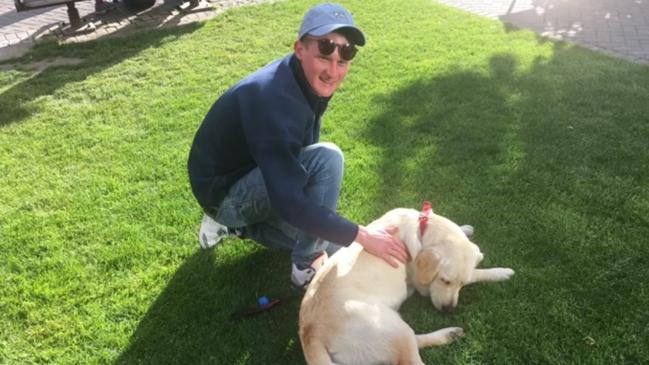
“Then you come out of that and you are dealing with a loss that is going to be with you for the rest of your life. But actually you want it to be with you for the rest of your life. So I think you want to talk about it. I know a lot of men, in particular, struggle talking about these sort of things. But by storing the grief up inside you, you are just hurting yourself.
“There are times when people have asked me ‘Look, I really wanted to talk to you about this or ask you a question but I wasn’t sure’, and then they’ll say, ‘Well, I’m worried about my son or my daughter or my friend’.
“So I feel strongly about this. Don’t store these things up. Yes, for me there was an element of coping. But I know we should be talking about these things.”
Passion project
In February, Healy, a Scotsman, retired as CEO of Judo Bank, which focuses on small and medium-sized enterprise lending, after seven years in the role, building its lending book from nothing to more than $10bn.
He is now working on raising $100m from the high net worth community to buy up to 125 mental health clinics across Sydney and Melbourne within the next three years.
All the acquired clinics will be existing established practices with proven operating performance. The owners of the clinics will sell their practice into a company established by Healy in return for equity and more professionalised management.
Seven clinics have already been signed up in Sydney to begin operating under his new business model from mid-next year. He is down to a shortlist of three names for the new enterprise.
He has also hired an experienced 20-year-plus female clinical psychologist to be the face of the business dealing with clinicians.
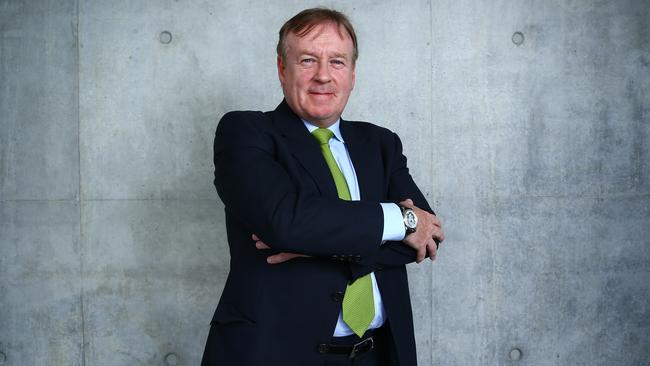
“I often think about with George, had I been more on the case around his mental health condition, would things have been different? A number of factors are all coincidentally connected, but his passing certainly made me feel that this is an area that I really want to have a passionate interest in. I want to make a contribution,” Healy told the Hamilton dinner.
“It is a cottage industry that needs a much more professional management approach to patient care, freeing up the clinicians of administrative tasks so they can do what they are really good at doing – that is, looking after patients or clients – and ensuring they have tools to better manage the way they operate, without compromising their autonomy as professionals.”
He believes the mental health profession is in crisis because there are more clinicians leaving than joining it.
“The size of this problem is huge, so this is going to require a lot of people. The system is overwhelmed. There are so many clinicians I have spoken to that are close to giving up because they can’t cope with the demands being made on them.
“It takes 12 weeks for patients to get an appointment with a mental health clinician.
“Also, if you walked into a medical clinic anywhere with five GPs and you had a condition, whatever it might be, and you saw each of them, you are going to get a very consistent diagnosis from them. If you walked into a mental health clinic with five psychologists, you could find you could easily get five different beats. So there’s a total lack of standards”
‘High care factor’
One of Healy’s core values has always been: “Don’t waste the gift of life.”
He watched his own father work too hard to support his family, being constantly mired in stress. He was only 62 when he died of stomach cancer.
It led Healy to want to investigate the link between stress and cancer.
Five years ago, as he built Judo, Healy enrolled in his sixth masters degree (he had completed two MBAs), in neuroscience and psychology, from King’s College London.
It was partly to keep his mind away from Judo consuming everything in his life.
“But also I was thinking about the future, that actually this is an area that I wanted to be educated in so that I could make a contribution, not as a clinician but as someone who could play a role in addressing some of the needs,” he told the Hamilton dinner.
“I studied the link between psychological stress and prostate cancer in men, psychological stress and breast cancer in women, and the evidence is quite overwhelming. Stress doesn’t cause those cancers, but if you are predisposed genetically to those cancers, the stress can trigger it. So I think stress management is really, really important.”
He now believes the Australian mental health system is pushing too many drugs on to people who should not be taking them, and while telehealth appointments are on the rise, Healy worries about technology potentially usurping the critical role of human contact in the profession.
“I remember talking to a telehealth provider who told me the most important thing is the LTV – the lifetime value of the customer. I said to him, ‘What do you mean the lifetime value? Your job should be to get them fixed and never see them again, rather than lifetime value?’. What he said is what a banker would say and that’s a legitimate thing for a bank to talk about. But in medicine?” he told the dinner.
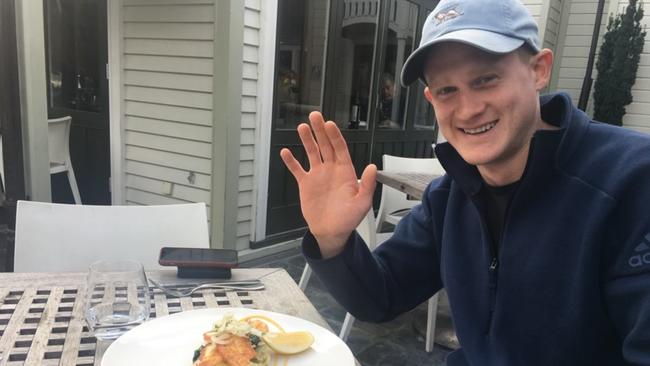
“So stepping back from all of that, I’m unashamedly passionate about human engagement. I’m also passionate about the role of technology and digitisation, but not as a substitute for human engagement.”
After being a banker for 40 years, Healy says the months since stepping down from the CEO role at Judo have been “amazing”, to immerse himself in a world that is so different.
He is also helping Monash University in Melbourne towards the establishment of a National Centre for Mental Health in the Workplace.
But one thing Healy is avoiding in his funding drive to build his new business is having a private equity operator come on board to financially engineer the balance sheet.
This plays to his deeper concern about the perception of him being driven by a profit motive.
“The motivation here is not money, but we have to make money. Because we can’t invest in the business unless we are generating returns. The only way we can solve the problems, and society’s expectations of this sector, is by investing in capabilities. That has to come from an economic outcome. But that’s not the primary motivation,” he said.
“I don’t want to be misleading, because I don’t want to start getting involved in something that is not making money. But I’m not seeking to drive dividends or big salaries. I want to reinvest in something and build something that makes a difference.
“I want to run it like a business, but with a high care factor. Success will be much better patient care, building a business that attracts high-calibre clinicians and psychiatrists.”
On one hand, Healy says, it is easier than building a bank, but it is also harder.
“Because building a bank is quite an economic proposition,” he said.
“Whereas with this, you’ve got to balance things in a way that you are doing things properly, in a way that people feel that it has got the right values attached to it.”



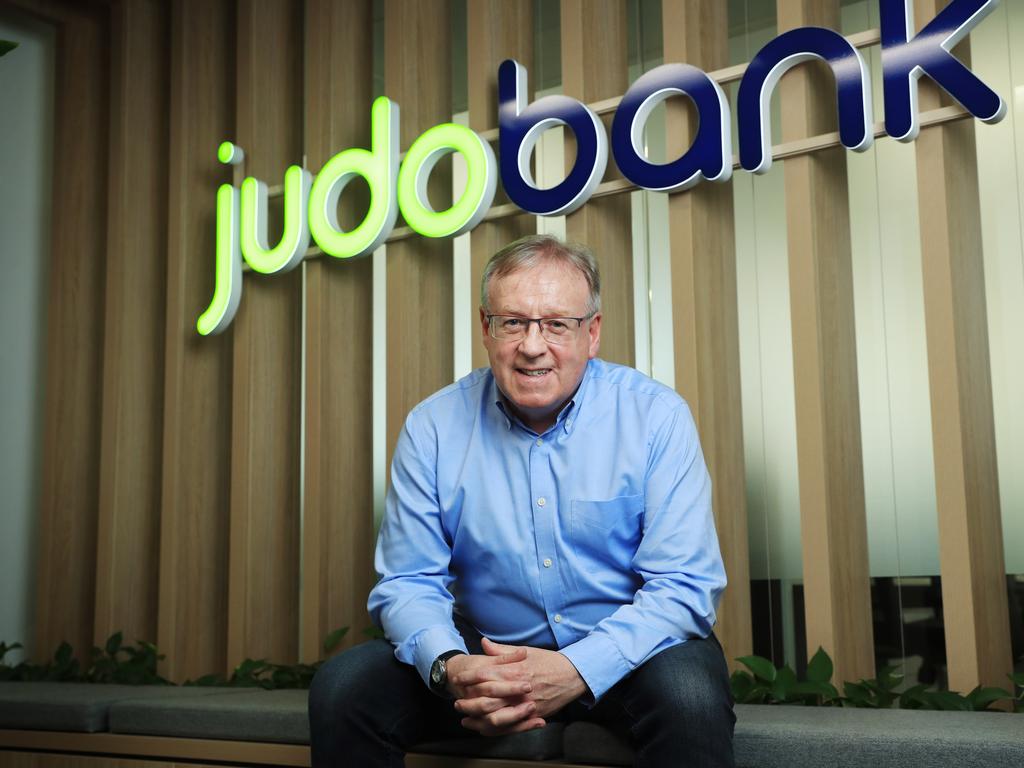
To join the conversation, please log in. Don't have an account? Register
Join the conversation, you are commenting as Logout